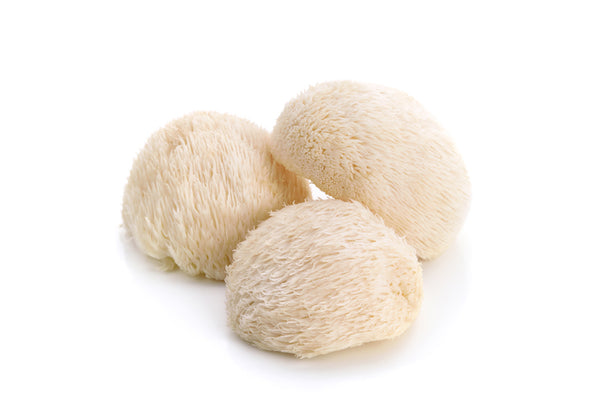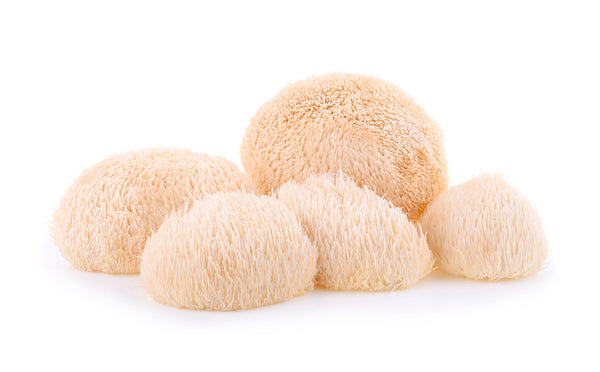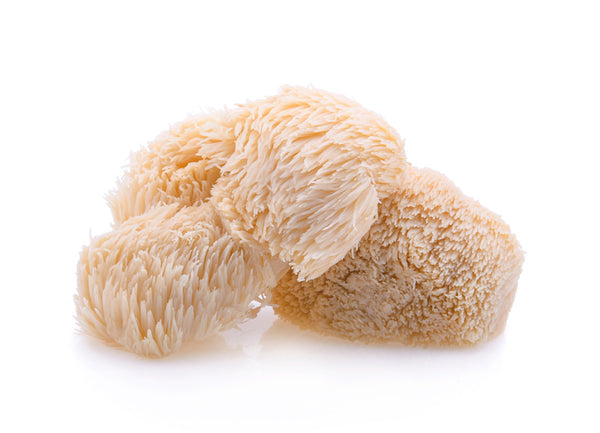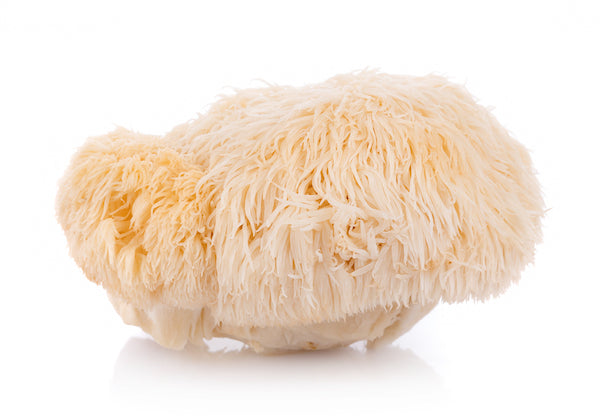Can Lion’s Mane Mushrooms Help with Migraines?
I remember vividly the first time I tried Lion’s Mane. It was during a period when my migraines had become almost a daily challenge.
Desperate for relief and intrigued by the potential of natural remedies, I turned to this intriguing mushroom. What I discovered not only opened my eyes to the power of adaptogens but also set me on a path to share this knowledge with others.
While scientific research is still exploring the full extent of Lion’s Mane mushrooms' benefits, preliminary studies suggest their potential in supporting neurological health, which could extend to alleviating migraines.
Lion’s Mane is known for its ability to stimulate the production of nerve growth factor, which could help in reducing the frequency and severity of migraines. However, it's important to consult healthcare professionals and consider personal health conditions before integrating new supplements into your routine.
What is Lion’s Mane Mushroom?

Lion’s Mane, a fungus celebrated for its unique appearance and medicinal properties, has a history of use in traditional medicine, particularly in Asia.
Known scientifically as Hericium erinaceus, it contains compounds like hericenones and erinacines, which are believed to stimulate nerve growth factor (NGF).
What Causes Migraines?
Migraines are not just ordinary headaches but complex neurological conditions influenced by various internal and external factors.
The exact cause is multifaceted, involving genetic, environmental, and physiological elements that affect the brain's chemical balance and blood vessel system. Some common triggers include:
- Hormonal fluctuations: Particularly in women, changes in estrogen levels around menstrual cycles can significantly impact migraine occurrences.
- Sensory overstimulation: Bright lights, loud noises, and strong odors can provoke migraines, indicating a heightened sensitivity in migraine sufferers.
- Lifestyle factors: Irregular sleep patterns, stress, changes in diet, or even weather changes can precipitate a migraine episode.
Understanding these triggers is essential for managing and potentially reducing the frequency and severity of migraines, making lifestyle adjustments an integral part of migraine management strategies.
Can Lion's Mane Reduce Migraine Frequency?

Exploring the effects of Lion's Mane on neurological health uncovers its potential to not just address the symptoms but to influence the underlying causes of migraines.
Its neuroprotective properties may help in mitigating inflammation and enhancing brain health, which in turn could lead to a reduction in migraine frequency. One recent study showed a link between using Lion's Mane and lowering the chance of neurological conditions like migraines due to its ability to promote nerve growth and reduce inflammation.
Using Lion's Mane During a Migraine: Does It Help?

While experiencing a migraine Lion's Mane mushroom may alleviate pain through its anti-inflammatory properties and ability to enhance nerve health, potentially reducing the severity of pain signals during a migraine.
Initial studies and user experiences suggest a promising role in pain management, but further research is needed to fully understand its effects.
Can Lion's Mane Lower the Duration of a Migraine?
Are Certain Migraine Types More Responsive to Lion's Mane Treatment?

Understanding the diverse nature of migraines is crucial when considering natural remedies like Lion's Mane.
Here, we delve into whether specific types of migraines or associated symptoms might be more amenable to Lion's Mane's therapeutic effects:
- Migraines with Aura: Characterized by visual disturbances or other sensory changes preceding the headache, these migraines might benefit from Lion's Mane's neuroprotective properties, potentially mitigating the neurological symptoms that accompany the aura phase.
- Photophobia-Associated Migraines: For migraines that induce extreme sensitivity to light (photophobia), Lion's Mane could offer relief by addressing the underlying neural inflammation that exacerbates this symptom.
- Chronic Migraines: Individuals experiencing frequent migraine episodes, defined as chronic migraines, might find Lion's Mane helpful in reducing the overall incidence of attacks, possibly due to its potential to enhance neural health and resilience.
- Stress-Triggered Migraines: Considering Lion's Mane's purported benefits on cognitive function and stress reduction, this adaptogen might be particularly beneficial for migraines triggered by stress or anxiety.
- Menstrual Migraines: Hormonally triggered migraines, such as those related to menstrual cycles, could potentially be alleviated by Lion's Mane, given its influence on neurohormonal pathways, though more research is needed in this specific area.
How to Incorporate Lion's Mane for Migraine Relief
Tonik Fusion offers two cacao latte blends that include Lion's Mane: the Immunity Warrior Cacao Latte and the Clarity Cacao Latte. Each blend is crafted with a mix of adaptogenic mushrooms and herbs aimed at supporting different aspects of health.

For those focusing on gut health, which is surprisingly linked to neurological well-being, the Immunity Warrior blend could be particularly beneficial due to its inclusion of Chaga and astragalus, along with Lion's Mane.
FAQ’s about Lion’s Mane & Migraines
How Long Does It Take for Lion's Mane to Potentially Affect Migraines?
The timeframe for experiencing potential benefits from Lion's Mane can vary, with some individuals noticing effects within a few weeks, while others may require longer periods of consistent use.
Can Lion's Mane Be Used Alongside Traditional Migraine Medications?
Lion's Mane is generally considered safe to use with traditional migraine medications, but it's crucial to consult a healthcare provider to avoid any potential interactions.
Can Incorporating Lion's Mane Into a Diet Impact Gut Health, and Subsequently, Migraine Occurrence?
Improved gut health from Lion's Mane's prebiotic effects could potentially reduce migraine occurrence due to the gut-brain axis connection, although direct evidence is limited.
Are There Specific Times of the Day When Taking Lion's Mane Is More Effective for Migraine Prevention or Relief?
Consistent daily intake of Lion's Mane is key for migraine prevention; however, morning consumption may be preferable for its potential alertness-boosting effects.
How Does Lion's Mane Interact With Caffeine or Other Common Dietary Components Known to Affect Migraines?
There's no significant evidence of adverse interactions between Lion's Mane and caffeine or other dietary components, but individual responses may vary.
Closing Thoughts
The journey toward managing migraines naturally is personal and unique to each individual. While Lion’s Mane mushrooms offer promising benefits, it’s important to approach their use with informed caution and professional guidance.
For those interested in exploring the potential of adaptogenic mushrooms further, here at Tonik Fusion we provide cacao latte blends designed to support overall well-being, including neurological health.

Check out our full range of cacao lattes here and take our quiz to find the blend that best suits your goals and lifestyle, potentially opening a new chapter in your migraine management journey.